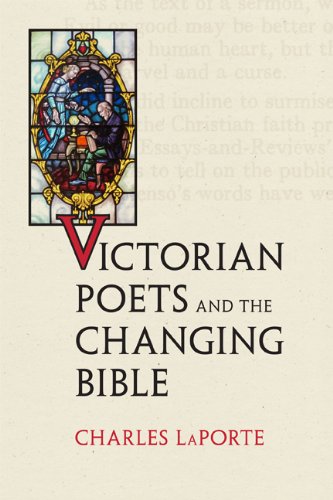

Most ebook files are in PDF format, so you can easily read them using various software such as Foxit Reader or directly on the Google Chrome browser.
Some ebook files are released by publishers in other formats such as .awz, .mobi, .epub, .fb2, etc. You may need to install specific software to read these formats on mobile/PC, such as Calibre.
Please read the tutorial at this link: https://ebookbell.com/faq
We offer FREE conversion to the popular formats you request; however, this may take some time. Therefore, right after payment, please email us, and we will try to provide the service as quickly as possible.
For some exceptional file formats or broken links (if any), please refrain from opening any disputes. Instead, email us first, and we will try to assist within a maximum of 6 hours.
EbookBell Team

5.0
98 reviewsVictorian Poets and the Changing Bible charts the impact of post-Enlightenment biblical criticism on English literary culture. The eighteenth and nineteenth centuries saw a widespread reevaluation of biblical inspiration, in which the Bible’s poetic nature came to be seen as an integral part of its religious significance. Understandably, then, many poets who followed this interpretative revolution―including Alfred, Lord Tennyson, Robert Browning, and Elizabeth Barrett Browning―came to reconceive their highest vocational ambitions: if the Bible is essentially poetry, then modern poetry might perform a cultural role akin to that of scripture. This context equally illuminates the aims and achievements of famous Victorian unbelievers such as Arthur Hugh Clough and George Eliot, who also responded enthusiastically to the poetic ideal of an inspired text.
Building upon a recent and ongoing reevaluation of religion as a vital aspect of Victorian culture, Charles LaPorte shows the enduring relevance of religion in a period usually associated with its decline. In doing so, he helps to delineate the midcentury shape of a literary dynamic that is generally better understood in Romantic poetry of the earlier part of the century. The poets he examines all wrestled with modern findings about the Bible's fortuitous historical composition, yet they owed much of their extraordinary literary success to their ability to capitalize upon the progress of avant-garde biblical interpretation.
This book's revisionary and provocative thesis speaks not only to the course of English poetics but also to the logic of nineteenth-century literary hierarchies and to the continuing evolution of religion in the modern era.
Victorian Literature and Culture Series